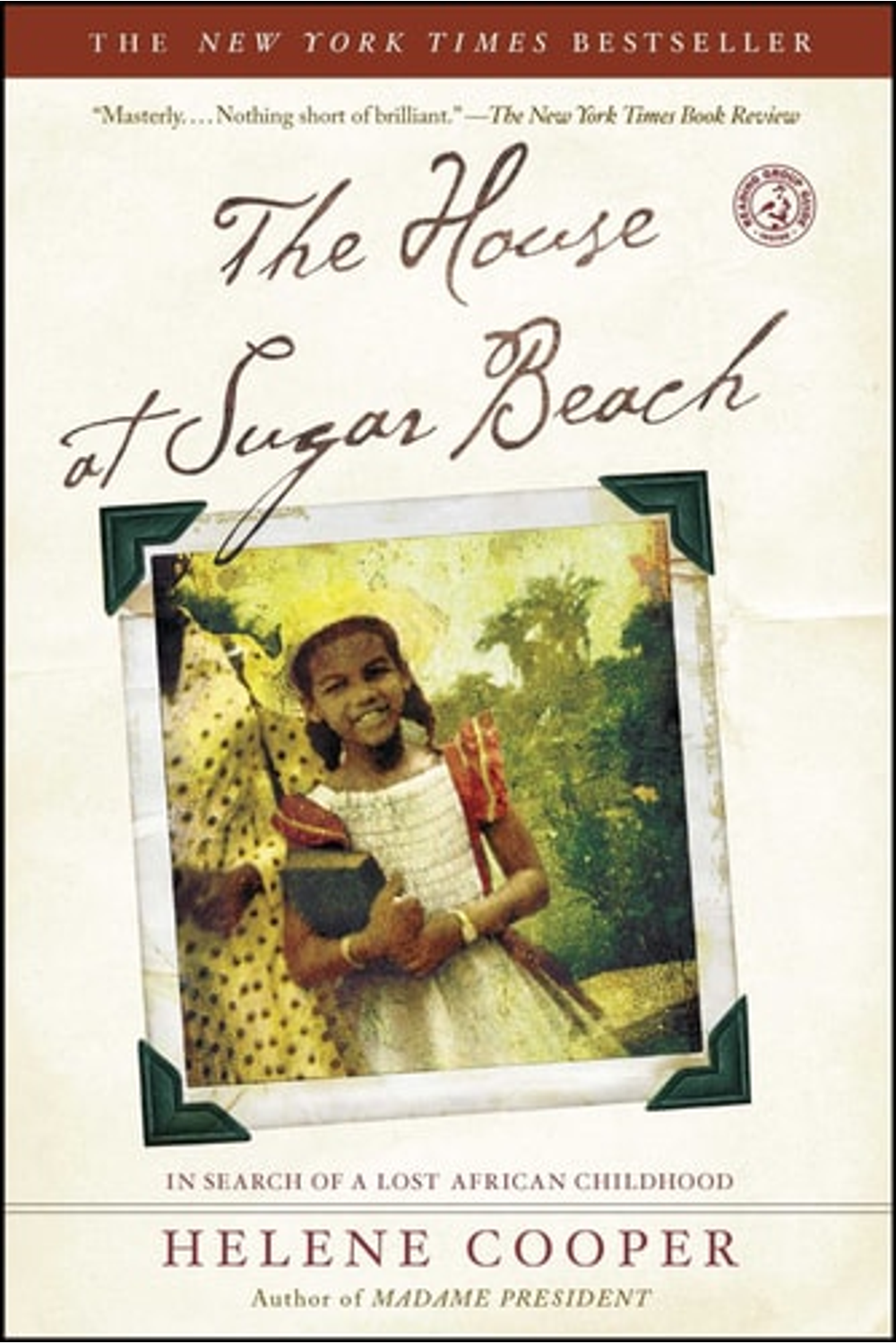“The House at Sugar Beach” is Helene Cooper’s powerful and poignant memoir of her Liberian childhood, ripped apart by the 1980 coup. A New York Times journalist, Cooper recounts her privileged upbringing as part of Liberia’s elite “Congo” class, descendants of freed American slaves, at their lavish Sugar Beach home. This idyllic existence is shattered by political upheaval, forcing her family to flee, leaving behind their beloved home and a foster sister, Eunice. The book chronicles Cooper’s journey of exile, assimilation in America, and eventual return to Liberia to confront her past, search for Eunice, and reconcile with her heritage. A National Book Critics Circle Award finalist, this illustrated edition offers an intimate look at Liberian history, class divisions, and the enduring search for home and forgiveness. Discover a world of privilege, political turmoil, and a deeply personal quest for identity.
The House at Sugar Beach: In Search of a Lost African Childhood
19,97 $
In stock
Journalist Helene Cooper examines the violent past of her home country Liberia and the effects of its 1980 military coup in this deeply personal memoir and finalist for the 2008 National Book Critics Circle Award.
Helene Cooper is Congo, a descendant of two Liberian dynastiestraced back to the first ship of freemen that set sail from New York in 1820 to found Monrovia. Helene grew up at Sugar Beach, a twenty-two-room mansion by the sea. Her childhood was filled with servants, flashy cars, a villa in Spain, and a farmhouse up-country. It was also an African childhood, filled with knock foot games and hot pepper soup, heartmen and neegee. When Helene was eight, the Coopers took in a foster childa common custom among the Liberian elite. Eunice, a Bassa girl, suddenly became known as Mrs. Coopers daughter.
For years the Cooper daughtersHelene, her sister Marlene, and Euniceblissfully enjoyed the trappings of wealth and advantage. But Liberia was like an unwatched pot of water left boiling on the stove. And on April 12, 1980, a group of soldiers staged a coup d’tat, assassinating President William Tolbert and executing his cabinet. The Coopers and the entire Congo class were now the hunted, being imprisoned, shot, tortured, and raped. After a brutal daylight attack by a ragtag crew of soldiers, Helene, Marlene, and their mother fled Sugar Beach, and then Liberia, for America. They left Eunice behind.
A world away, Helene tried to assimilate as an American teenager. At the University of North Carolina at Chapel Hill she found her passion in journalism, eventually becoming a reporter for the Wall Street Journal and the New York Times. She reported from every part of the globeexcept Africaas Liberia descended into war-torn, third-world hell.
In 2003, a near-death experience in Iraq convinced Helene that Liberiaand Eunicecould wait no longer. At once a deeply personal memoir and an examination of a violent and stratified country, The House at Sugar Beach tells of tragedy, forgiveness, and transcendence with unflinching honesty and a survivor’s gentle humor. And at its heart, it is a story of Helene Coopers long voyage home.
| Authors | |
|---|---|
| Binding | |
| Condition | |
| ISBN-10 | 0743266250 |
| ISBN-13 | 9780743266253 |
| Language | |
| Pages | 354 |
| Publisher | |
| Year published | |
| Weight | 329 |
| Edition | Illustrated |
Related products
-
Undernose Farm Revisited
13,50 $ -
Birds of Prey
17,89 $ -
Tangled Threads
13,50 $
- Additional information
- Currencies
- USD – United States dollar
- EUR – Euro
- GBP – Pound sterling
- CNY – Chinese yuan
- BRL – Brazilian real
- MXN – Mexican peso
- JPY – Japanese yen
- PHP – Philippine peso
- THB – Thai baht
- PLN – Polish złoty
- CAD – Canadian dollar
- MYR – Malaysian ringgit
- AUD – Australian dollar
- TWD – New Taiwan dollar
- CZK – Czech koruna
- SEK – Swedish krona
- HUF – Hungarian forint
- ILS – Israeli new shekel
- CHF – Swiss franc
- HKD – Hong Kong dollar
- DKK – Danish krone
- SGD – Singapore dollar
- NOK – Norwegian krone
- NZD – New Zealand dollar





